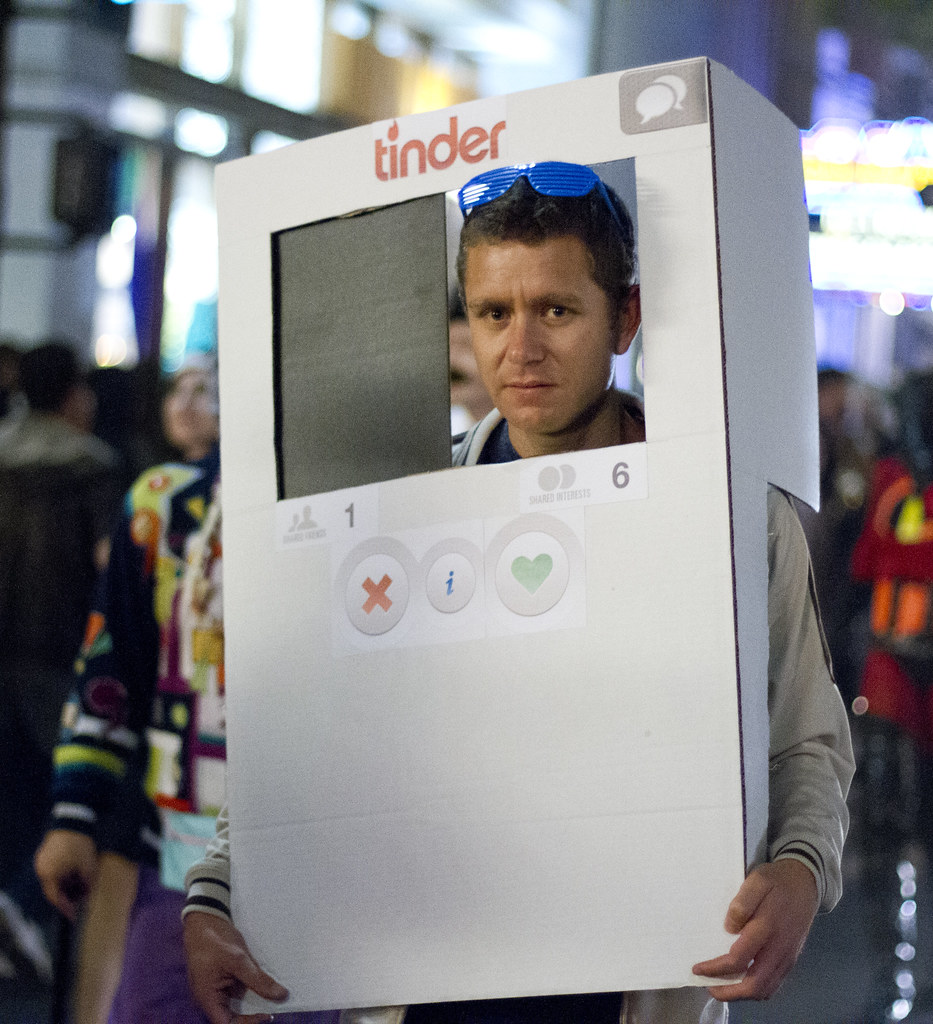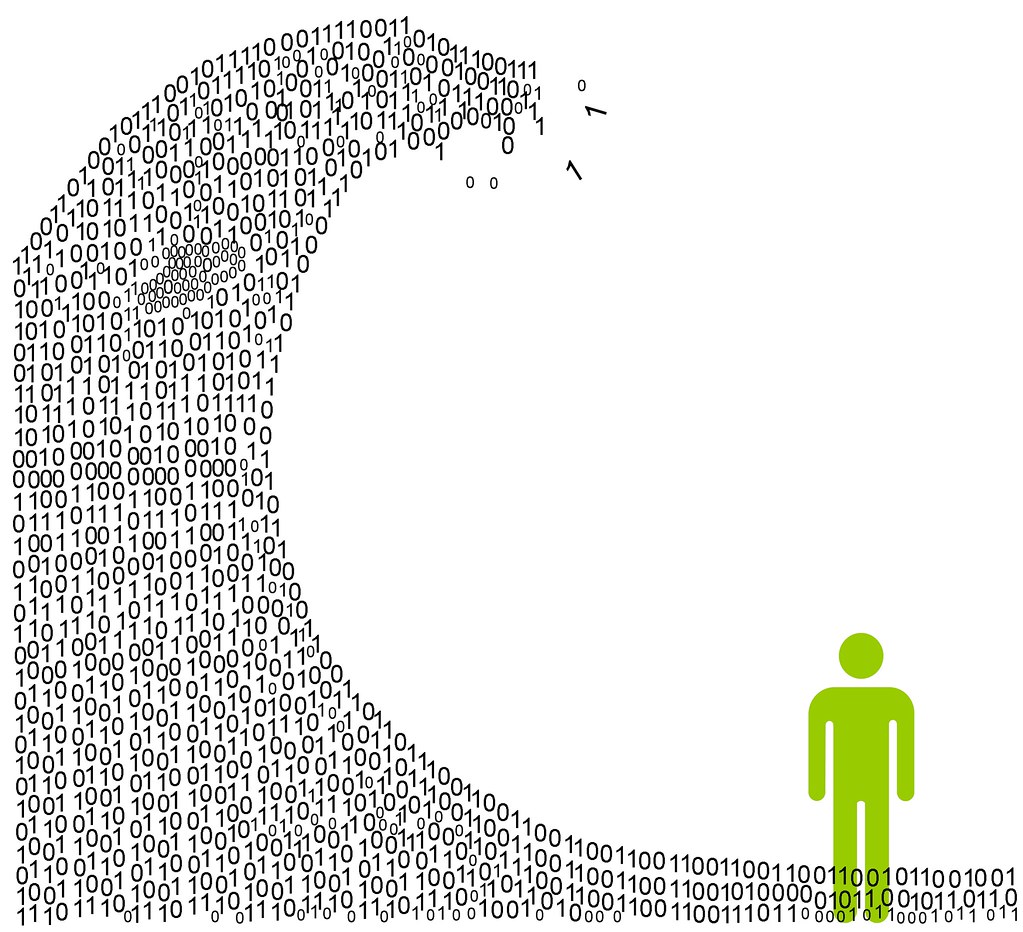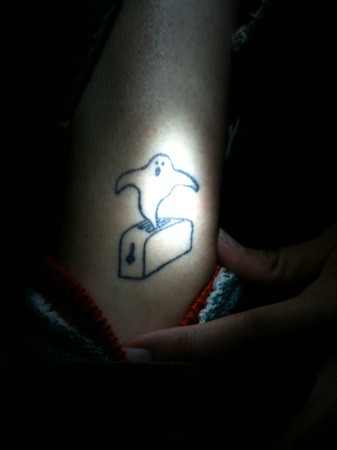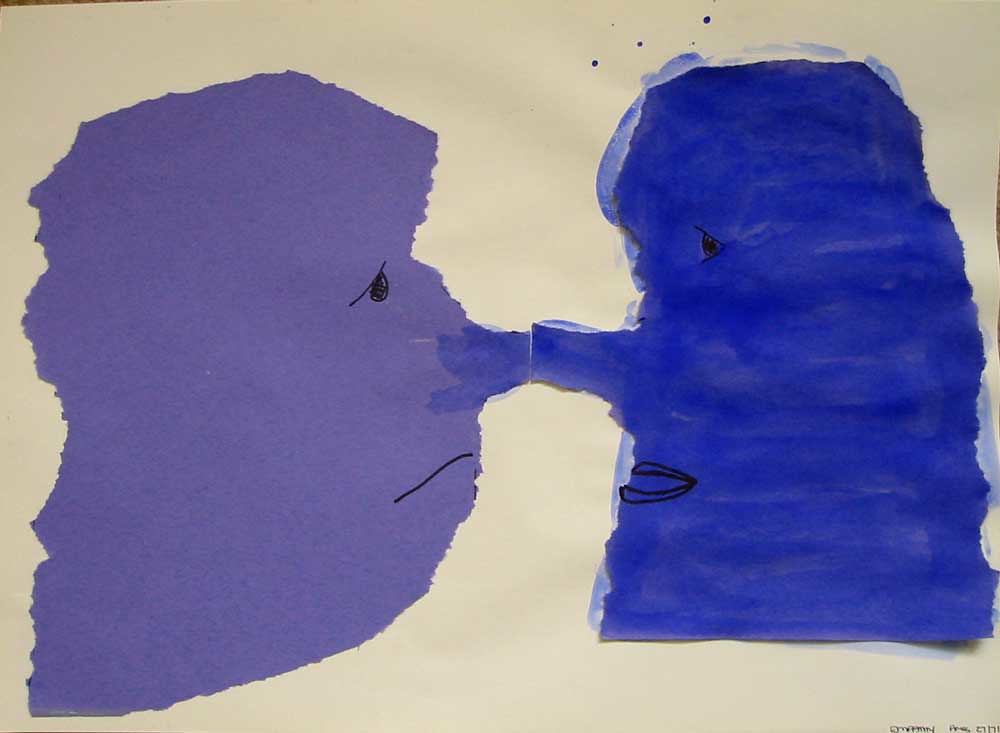
In the fast-paced, hyper-connected world of instant messaging and endless digital interactions, a peculiar and often painful phenomenon has taken root, silently reshaping the landscape of modern relationships: ghosting. While traditionally associated with the murky waters of online dating, this act of abrupt disappearance has now hauntingly made its way into the very fabric of friendships, leaving a trail of unanswered questions and emotional bewilderment in its wake. It’s no longer just a dating mishap; it’s become a default escape hatch for many, especially within Generation Z, raising critical questions about the future of how we connect and disconnect.
Gen Z, a generation that prides itself on radical openness and a heightened awareness of mental health, finds itself caught in a paradox: a culture that, inadvertently, seems to reward avoidance. This deep dive aims to explain the ‘why’ and ‘how’ behind ghosting’s prevalence among young adults, particularly when it comes to their friendships. We’ll peel back the layers of digital convenience, evolving social norms, and the intricate psychological undercurrents that contribute to this silent epidemic, offering a comprehensive understanding of what it means for the very nature of human connection.
As senior media editors, we’ve witnessed countless shifts in communication, but few are as impactful and emotionally charged as the rise of ghosting. It’s a trend that extends far beyond a simple ignored text; it represents a profound change in how we navigate social contracts, express discomfort, and ultimately, value the emotional well-being of others. Join us as we explore the complex terrain of ghosting, seeking clarity in the silence and understanding in the sudden absence, to truly grasp what this means for Gen Z and the friendships of tomorrow.

1. **Defining the Digital Disappearance: What Ghosting Truly Is**At its core, ghosting refers to the sudden and unexplained cessation of all communication by one party in a relationship, without any prior warning or offering any form of closure. Imagine the scenario: you’re chatting with someone daily, sharing aspects of your life, making plans, and then, without a single word, they simply vanish. No replies, no explanations, just an abrupt digital silence. It’s a complete vanishing act, leaving the recipient in a bewildering state of uncertainty.
This isn’t merely about ignoring a message or taking a while to respond; it’s the profound act of emotional erasure, akin to being suddenly dropped from someone’s life without explanation. Psychologists, like Dr. Jennice Vilhauer, a clinical psychologist who has extensively studied rejection trauma, explain that ghosting is essentially the modern form of the silent treatment. It operates like a psychological landmine, triggering intense emotional responses in the person on the receiving end.
The impact isn’t just anecdotal. Being ghosted leaves the recipient grappling with a torrent of questions and self-doubt, replaying conversations, and searching for clues that never materialize. It’s about the absence of explanation, the deliberate withholding of information that leaves a void. This lack of communication forces the ghosted individual into a loop of searching for resolution, a resolution that, crucially, never comes.

2. **The Silent Treatment’s Sting: Psychological Trauma for the Ghosted**The emotional toll of being ghosted is far from harmless, as psychological experts consistently warn. Dr. Vilhauer illuminates how this modern silent treatment activates the same parts of the brain that light up when we experience abandonment. Our nervous system, she explains, doesn’t differentiate between someone dying or someone merely disappearing from an inbox; in either scenario, the brain registers the absence as danger, which can lead to genuine trauma.
This impact is not solely based on individual experiences. A significant 2022 study published in the International Journal of Environmental Research and Public Health corroborated these expert opinions, finding that young adults who had been ghosted reported markedly higher rates of anxiety, an increase in depressive symptoms, and a considerable plummeting of self-esteem. The crux of the issue isn’t just the rejection itself, but the profound lack of closure that accompanies it.
Without an explanation, the brain remains trapped in a perpetual loop, relentlessly searching for understanding that is deliberately withheld. As one Reddit user poignantly expressed, “It’s worse than being dumped, because at least with a breakup you know what happened. With ghosting, you spend weeks wondering if they’ll come back.” This uncertainty, psychologists concur, is uniquely cruel, extending the period of distress and hindering the healing process significantly. The emotional consequences reverberate, fostering confusion, self-doubt, and a distressing sense of invisibility.

3. **Gen Z’s Digital Native Reality: Why Ghosting Became a Default**Gen Z stands as the first generation to grow up entirely immersed in a digital-first world, where online interactions often precede, and sometimes entirely replace, face-to-face communication. This ubiquitous digital fluency means that relationships, by their very design within this landscape, can often feel more disposable. The ease of forming connections online can inadvertently lead to a corresponding ease in disengaging, shaping ghosting into what feels like an inevitable, almost standard, practice.
This generation is also remarkably fluent in the language of therapy and self-care, a positive societal shift underscored by Pew Research, which found that 70% of Gen Z openly discuss mental health, a stark contrast to less than half of Baby Boomers. While this openness represents healthy progress, experts caution that this language, particularly concerning boundaries, can sometimes be inadvertently “weaponized” or misapplied, leading to unintended consequences in interpersonal relationships.
The heart of the ghosting story among Gen Z lies in a profound contradiction: they are a generation raised on radical openness and authenticity, yet they are increasingly navigating a culture that, in many subtle ways, rewards avoidance. The instantaneous nature of digital communication, coupled with a nuanced understanding of personal well-being, has unfortunately created an environment where disappearing without explanation can often feel like the path of least resistance, despite the inherent emotional damage it inflicts on both parties involved.

4. **The Endless Buffet Effect: Dating Apps and Disposable Connections**The proliferation of dating applications like Tinder and Bumble has fundamentally reshaped the landscape of how relationships are initiated and perceived. Dr. Ramani Durvasula, a psychologist specializing in online behavior, articulates this shift with striking clarity: these apps have “created an endless buffet of potential partners.” This metaphor powerfully illustrates a cultural change where the next option is quite literally just a swipe away, fostering a sense of boundless alternatives.
This environment inherently diminishes the perceived value of individual connections. If a burgeoning relationship or even a first date feels awkward or less than perfect, the immediate instinct, facilitated by the digital platform, is often to simply disengage and move on to the next possibility. Dr. Durvasula notes that there’s no perceived need to “talk it out” when “another option is literally right there, waiting.” This phenomenon makes ghosting feel significantly easier, almost a logical progression within an abundant marketplace of potential partners.
The “grass is greener” mindset becomes almost an inherent feature of this dating ecosystem, leading to rapid disengagement when someone doesn’t immediately feel like a flawless match. When the supply of potential partners appears infinite, the incentive to invest deeply in resolving minor friction or discomfort with any single individual diminishes considerably. This disposability, built into the design of these platforms, plays a crucial role in normalizing ghosting as a convenient exit strategy, ultimately transforming relationships into transient, replaceable encounters rather than commitments requiring negotiation and effort.

5. **Weaponizing Self-Care: When Boundaries Become Avoidance**While the modern emphasis on self-care and setting personal boundaries is undoubtedly a healthy development, psychologists are observing a concerning trend where this language is sometimes misapplied, becoming a shield for avoidance. Dr. Kelifern Pomeranz, a California psychologist specializing in contemporary relationships, cautions that while “protecting your peace is important,” it is equally crucial “not to weaponize that language.” This distinction is vital in understanding the nuances of ghosting behavior.
When someone genuinely states, “I don’t have the capacity to talk about this,” it can be a legitimate and healthy boundary. However, the act of simply disappearing without any form of explanation crosses a different line. Dr. Pomeranz argues that this behavior denies the other person the fundamental dignity of closure. In her words, “That’s not a boundary—that’s avoidance dressed up as self-care.” The positive intent behind self-care can be distorted, masking a reluctance to engage in difficult but necessary communication.
Furthermore, Dr. Tirrell DeGannes, a New York-based clinical psychologist, points out that the modern therapy culture, while laudable for its promotion of mental health language, has at times overlooked an equally crucial component: communication skills. Young adults, he observes, may be well-versed in articulating their mental health needs and boundaries, but often remain unprepared for the practicalities of conflict resolution and having uncomfortable conversations. The ability to maintain boundaries, he stresses, is not mutually exclusive with the capacity to offer clarity and respectful disengagement to another person.

6. **Communication Overload: Technology’s Unintended Role in Disappearing Acts**Beyond simply creating an environment of disposable connections, technology itself significantly turbocharges the phenomenon of ghosting. Our digital devices, while enabling constant connectivity, also facilitate an overwhelming influx of communication that can lead to burnout. A 2023 study published in Computers in Human Behavior revealed that Gen Z participants frequently resorted to ghosting not out of deliberate cruelty, but due to what researchers termed “communication overload.”
In an era where individuals juggle myriad conversations across countless applications and platforms, the sheer volume of digital interactions can become incredibly taxing. For some, the act of ignoring a text thread ceases to feel like a betrayal and begins to feel more like a necessary act of survival. The constant pressure to respond, to engage, and to maintain multiple connections can become an unsustainable burden, making abrupt disengagement an appealing, albeit problematic, solution.
As one researcher at SUNY New Paltz succinctly put it, “Ghosting seems to be an emerging norm among this younger generation, and I think it’s absolutely something that has been facilitated through technology and social media.” This observation underscores how the very tools designed to bring us closer can, ironically, create conditions that enable the easy and silent severance of ties. The ease of cutting someone off with a swipe or a tap, without facing immediate social consequences, transforms digital devices into effective invisibility cloaks for those seeking to disappear.

7. **The Cycle of Silence: Understanding Reciprocal Ghosting**One of the most intriguing and concerning aspects of ghosting, as illuminated by recent research, is the pervasive pattern of “reciprocal ghosting.” This phenomenon describes a cycle where individuals who have experienced the pain of being ghosted are often more likely to adopt the same behavior themselves. It’s a self-perpetuating loop of silence and avoidance, transforming victims into perpetrators in an attempt to protect themselves from future harm.
Licensed Clinical Psychologist Dr. Alexander Alvarado explains this pattern as a “cyclical emotional pattern.” He suggests that once people endure the discomfort and emotional distress of being ghosted, they might unconsciously adopt the same behavior as a self-defense mechanism. The rationale, however misguided, is often rooted in the belief that it is “better to disengage first than risk emotional harm” themselves. This creates a defensive posture that unfortunately propagates the very behavior they found so hurtful.
Further reinforcing this idea, a study from the University of Georgia yielded a surprising result: “those who suffered the most from ghosting were also those who practiced it most frequently.” These individuals often exhibit a strong need for closure and a low tolerance for uncertainty, paradoxically creating ambiguity for others while seeking firm answers for themselves. This internal conflict highlights the complex psychological landscape of ghosting, where an individual’s past trauma can inadvertently shape their future actions, deepening the cultural embrace of this emotionally damaging practice.
Despite the clear understanding of ghosting’s toxicity – a Plenty of Fish survey found that 78% of daters under 30 called it worse than lying – nearly half admitted they had engaged in the behavior themselves. Research further indicates that 77% of Gen Zers have ghosted someone, compared to 61% of Millennials. This stark data underscores the inherent contradiction: almost everyone is both a victim and a perpetrator, contributing to a pervasive culture of avoidance that erodes trust on both sides of the digital divide.
Navigating the complexities of modern communication, we find that the silent treatment extends far beyond the realm of romantic entanglements. Ghosting, an act once primarily confined to the early stages of dating, has stealthily permeated other significant interpersonal relationships, leaving its mark on friendships and even professional interactions. This expansion underscores a broader shift in how individuals, particularly within Gen Z, choose to disengage, prompting a deeper investigation into the underlying motivations and the generational nuances that shape this behavior.
As we continue our exploration, we’ll uncover the various contexts in which ghosting manifests, examine the psychological underpinnings of why individuals choose to vanish, and shed light on the unique perspectives of different generations. Crucially, we will also equip you with strategies for healing from the sting of absence and advocate for cultivating communication practices that pave the way for more authentic and empathetic connections in the future.

8. **Beyond Romance: Ghosting’s Creep into Friendships**While the most infamous type of ghosting often conjures images of unreturned texts in the dating world, this abrupt disappearance act is far from exclusive to romantic pursuits. The decision to stop talking with people without explanation has unsettlingly made its way into other aspects of life, becoming increasingly common and almost typical in relationships with friends, and even within professional settings and businesses. This expansion signals a broader societal shift in how individuals navigate discomfort and disengagement, highlighting a growing reluctance to engage in direct, albeit challenging, conversations.
Indeed, a surprising one in two individuals reported being ghosted by a close friend, a trend observed more frequently among Gen Z compared to Millennials, and also more often among women than men. This data reveals that the emotional pain of a sudden disappearance isn’t solely tied to romantic expectations; it carries significant weight within the bonds of friendship. When a trusted friend vanishes without a word, it can be just as, if not more, disorienting and hurtful than a romantic partner doing the same.
More than half of those surveyed admitted to ghosting a friend themselves, and the primary motivation often circles back to a familiar theme: avoiding confrontation. The desire to sidestep conflict, to not have to deal with any potential disagreements or uncomfortable discussions within the relationship, drives many to choose the path of least resistance. As Marriage and Family Therapist Lindsay Huckaba explains, “I think a lot of us ghost others because that can feel like the ‘easiest’ option at the time with the resources we have.” This highlights the often-perceived convenience of silence, despite its emotional fallout.
Christina Leckfor, lead author of a University of Georgia study, further corroborates this, noting that her team, while focused on romantic connections, found that more than half of surveyed young adults spontaneously recounted experiences of friendships ending through ghosting. To their surprise, for young adults, there was no emotional difference; it hurt as much when a partner or romantic date vanished as when a friend did, closing all avenues of contact. This suggests that the bond of friendship is just as vulnerable, and its severance just as painful, when met with silence.

9. **The Professional Phantom: Ghosting in the Workplace**The silent treatment, once the hallmark of personal relationships gone sour, has alarmingly seeped into the professional world, creating a new set of challenges for both job seekers and employers. Instances of ghosting in the workplace are on the rise, manifesting in various forms that can disrupt hiring processes and even team dynamics. This trend highlights a growing shift in professional etiquette, where the traditional norms of communication are being quietly eroded.
On the one hand, a significant number of prospective workers are now engaging in professional ghosting. While one in six admitted to ghosting a prospective employer during the interview process, the reasons are varied. Some simply decide they no longer want the job, others accept a different offer, and a notable portion cite a bad interview experience as their rationale. Alarmingly, one in four admitted to ghosting a workplace by quitting without notice or explanation, demonstrating a willingness to disregard the long-held advice of “Don’t burn bridges.”
Conversely, the phenomenon is also frequently observed with employers as the perpetrators. More than two in five individuals have been ghosted by a prospective employer, most commonly after an interview. This leaves job candidates in a frustrating limbo, unsure of their status or where they stand. The Leckfor team, though primarily focused on romantic ghosting, acknowledges this professional variant, noting that work-related ghosting can be even more harmful than a typical rejection email due to the prolonged uncertainty and emotional investment involved for the candidate.
The impact of this professional phantom extends beyond individual disappointment. For employers, being ghosted by candidates can lead to wasted resources, delays in hiring, and a damaged reputation. For candidates, being ghosted by a potential employer can be demoralizing, fostering distrust in the job market and exacerbating the already stressful process of finding employment. This creates a cycle where both parties, when comfortable with silent disengagement, contribute to an environment of professional ambiguity and frustration.

10. **Unpacking the “Why”: Core Reasons Behind the Ghoster’s Vanish**To truly understand the widespread nature of ghosting, it’s crucial to delve into the complex motivations that drive individuals to vanish without a trace. While the act itself might seem simple, the reasons behind a ghoster’s disappearance are multifaceted, ranging from personal discomfort to external pressures, all contributing to this emerging norm. Understanding these core motivations is essential for comprehending the phenomenon beyond surface-level observations.
One of the most common reasons people choose to ghost is a straightforward lack of interest in continuing a relationship, whether romantic or platonic. Instead of having a potentially awkward or uncomfortable conversation, many find it easier to simply stop communicating. This avoidance of confrontation is a significant driver, as some individuals lack the communication skills to have an honest conversation, as acknowledged by participants in a study led by Gili Freedman and Darsey Powell. They reported that in-person confrontation often generated “social anxiety,” making silence feel like a more manageable option.
Beyond simple disinterest and conflict avoidance, other psychological factors come into play. Many ghosters report feeling stressed or overwhelmed by expectations, particularly in the context of multiple digital interactions. Nearly one in three shared they ghost because they are struggling with mental health, highlighting a concerning link between personal well-being challenges and communication avoidance. Moreover, some psychologists identify avoidant attachment tendencies as a contributing factor, where individuals might ghost to avoid emotional vulnerability or perceived closeness.
Interestingly, many who ghost also experience a sense of relief rather than regret. A stunning 86% felt respite after ghosting, with women (91%) reporting this more frequently than men (80%). Less than half felt regret, and only about 7 in 10 felt guilty for it. This immediate relief, coupled with the belief that disappearing is more polite than direct rejection or a way to protect the other person’s feelings, can reinforce the behavior. Furthermore, safety concerns, particularly for women, play a role, with 45% citing that ghosting helps avoid “awkward and toxic situations,” especially when dealing with strangers online.
Another nuanced motivation, particularly in hookup culture, is the desire to prevent mixed signals. Some participants in studies considered it “normal” to disappear after a sexual encounter if they were only seeking sex, believing that continued communication could wrongly imply a desire for more emotional intimacy. Additionally, strong beliefs in destiny, where people believe their “better half” is waiting, can lead to ghosting if someone decides the current connection isn’t “the one.” This multitude of reasons underscores that ghosting is rarely a singular act but a culmination of personal tendencies, digital environment influences, and perceived social dynamics.

11. **The Generational Divide: How Gen Z’s Stance Differs from Millennials’**The landscape of ghosting reveals a fascinating generational divide, particularly between Gen Z and Millennials, in both their attitudes towards the practice and their engagement with it. While both generations are undeniably immersed in digital communication, their perceptions and behaviors around ghosting suggest evolving social norms and differing approaches to interpersonal relationships. This nuanced comparison offers valuable insights into the future trajectory of communication etiquette.
Initially, the data presents a seeming paradox. Research indicates that more Gen Zers (77%) have ghosted someone compared to Millennials (61%). However, contrasting surveys provide a deeper understanding of their underlying attitudes. According to online dating app Bumble, a significant 69% of Gen Z members believe ghosting is inappropriate, with only one in five considering it a “normal phenomenon.” This suggests that despite engaging in the behavior, often due to the pressures of communication overload or reciprocal ghosting as discussed earlier, Gen Z largely disapproves of it.
Millennials, on the other hand, show a more ambivalent stance. While 61% of Millennials also deem ghosting inappropriate, almost twice the number of Millennials than Gen Z consider it a “normal phenomenon.” The Bumble survey further clarifies this, showing 60% of Millennials had no problem unilaterally dissolving a connection without explanation if there was no chemistry on the first meeting, a sentiment shared by only 20% of Gen Z. This suggests Millennials might be more accustomed to or accepting of ghosting as a byproduct of online dating culture.
Experts attribute Gen Z’s stronger anti-ghosting stance to evolving communication styles and upbringing. Gen Z reportedly has a more laid-back approach to dating, preferring to keep interactions fun and casual, which might encourage them to maintain conversations rather than abruptly disappear. Furthermore, life and wellness coach Carita Wong suggests that Gen Z’s parents may be “younger, more aware and more expressive,” encouraging their children to communicate openly and discuss their feelings. This improved communication culture in the home could be fostering a greater emphasis on directness and empathy, even if the digital landscape still presents challenges to its consistent application.
12. **The Agony of Ambiguity: Why Lack of Closure Hurts Most**The emotional fallout of being ghosted is often compounded by one agonizing element: the profound lack of closure. More than the rejection itself, it is the unanswered questions and the deliberate withholding of explanation that inflict the deepest wounds, leaving the ghosted individual in a prolonged state of confusion and distress. This unique aspect of ghosting sets it apart from more conventional forms of relationship endings, making it particularly cruel in its impact.
Without any form of explanation, the brain becomes trapped in a perpetual loop, relentlessly searching for understanding that never materializes. As one Reddit user poignantly articulated, “It’s worse than being dumped, because at least with a breakup you know what happened. With ghosting, you spend weeks wondering if they’ll come back.” This uncertainty, psychologists agree, is uniquely detrimental, significantly extending the period of distress and hindering the natural healing process that typically follows a relationship’s end.
Psychology Today emphasizes that this lack of closure frequently exacerbates emotional distress, leading to what experts sometimes term “closure deprivation.” It’s akin to watching a movie that abruptly ends before the final act, leaving the viewer hanging, desperately craving resolution. This persistent ambiguity can lead to rumination, where the mind continuously tries to fill in the blanks of an unfinished story, making it incredibly difficult to move on and accept the reality of the situation.
Royette T. Dubar, a professor of psychology studying tech use in relationships, highlights that “Part of the problem is the lack of clarity — not knowing why communication abruptly stopped.” This often triggers an element of paranoia as the ghosted individual tries to make sense of the situation, replaying conversations and interactions in search of clues that aren’t there. Over time, the memory of being ghosted can become more painful than a direct breakup, leaving long-term scars of mistrust and even self-blame that can subtly sabotage future relationships.

13. **Picking Up the Pieces: Healing and Moving On After Being Ghosted**While the experience of being ghosted is undoubtedly painful, it is crucial to remember that healing and moving forward are entirely possible. The journey back to emotional equilibrium begins with self-awareness and self-compassion, recognizing that the act of ghosting says more about the perpetrator’s communication style than it does about the recipient’s worth. Taking proactive steps can transform a bewildering experience into an opportunity for personal growth.
The first vital step in the healing process is to allow yourself to feel your emotions without judgment. It is perfectly normal to experience hurt, confusion, anger, or sadness. Bottling up these feelings will only prolong the distress; instead, acknowledge and process what happened. Giving yourself permission to grieve the loss of a connection, however brief, is a fundamental part of moving towards acceptance and eventual recovery.
Crucially, it is imperative not to succumb to self-blame. Ghosting is a reflection of another person’s inability or unwillingness to communicate directly, not a judgment of your inherent value or desirability. Their silence is their issue, not a commentary on your worth. Internalizing the rejection and spiraling into self-doubt can be incredibly damaging; therefore, consciously challenging these negative thoughts and reaffirming your self-worth is a powerful act of self-care.
Since an explanation from the ghoster may never arrive, creating your own closure becomes a powerful healing tool. This doesn’t mean fabricating an imaginary reason, but rather finding internal peace. This could involve writing a letter you never send, talking through your feelings with a trusted friend or family member, or engaging in reflective practices that help you process the experience and consciously release it. Seeking support from friends, family, or even a therapist can provide invaluable comfort and perspective, reminding you that you are not alone in this experience.
Finally, rebuilding your confidence is paramount. Investing in your hobbies, passions, and personal goals helps to redirect focus and reinforce your sense of self outside of the context of the ghosted relationship. Remember, you are more than someone else’s inability to communicate. By focusing on your own growth and well-being, you can transform the experience from a source of ongoing pain into a stepping stone towards stronger, more resilient future connections.

14. **A Path Forward: Cultivating Better Communication and Empathy**The prevalence of ghosting within modern relationships, particularly among Gen Z, presents a clear call to action: to cultivate a culture of better communication and empathy. While silence might offer a fleeting moment of ease, its lasting emotional scars on both parties underscore the urgent need to redefine how we initiate and conclude our interpersonal connections. The path forward lies in choosing clarity over convenience, even when it feels uncomfortable.
As clinical psychologist Dr. Jennice Vilhauer wisely articulated, “Silence may feel easier in the moment, but it creates lasting damage. Even a two-sentence breakup text is better for both people’s mental health than disappearing.” For a generation that often prides itself on radical openness and a heightened awareness of mental health, embracing the challenge of honest, direct communication—even in its most awkward forms—represents the next significant marker of maturity and emotional intelligence. This means actively developing the skills to navigate difficult conversations.
Licensed Clinical Psychologist Dr. Alexander Alvarado strongly advocates for open communication. He asserts that if one is no longer interested in continuing a relationship, it is fundamentally respectful to inform the other person directly. While this might indeed be an uncomfortable conversation, it ultimately allows both individuals to achieve closure and move forward without the burden of lingering questions or unresolved emotional turmoil. The short-term discomfort of honesty is far outweighed by the long-term benefits of clarity.
Marriage and Family Therapist Lindsay Huckaba further supports this, recommending that people directly communicate their feelings and thoughts. She emphasizes that it is entirely normal not to feel compatibility or connection with every person we meet, and simply letting someone know this can provide them with crucial clarity and understanding about the relationship’s conclusion. Even a simple, kind message like, “I don’t think this is working, but I appreciate the time we shared,” can make a world of difference, offering respect where silence only offers bewilderment.
Ultimately, cultivating empathy means recognizing the human impact of our actions. Ghosting might feel like the easy way out, but it leaves behind lasting emotional scars. For Gen Z, who champion mental health awareness, bringing this same honesty and consideration to how relationships end is paramount. If individuals are unsure how to approach such conversations, seeking guidance from a therapist is a constructive step. The message is clear: choose closure, choose courage, and choose to be better, fostering a future where connections are honored, even in their conclusion.
Read more about: The AI Revolution: 15 Key Careers Set to Transform (Or Disappear) by 2030 – Are You Ready to Pivot?

15. **Geographic Trends: Where Ghosting and Being Ghosted Are Most Common**The phenomenon of ghosting, while widespread, also exhibits intriguing geographic patterns, offering a unique perspective on how regional social dynamics and population densities might influence communication behaviors. By analyzing Google search data, researchers have been able to identify which cities are more prone to either ghosting or being ghosted, painting a revealing picture of the digital dating and friendship landscape across the United States. This data provides a fascinating, if sometimes sobering, look at urban social norms.
The methodology behind these findings involved analyzing Google search volumes for 418 terms related to ghosting over a three-year period, from July 2020 to July 2023, across the 50 most populous U.S. cities. The cities most likely to be ghosted were identified as those with the highest search activity for terms like “why do men ghost you” or “am I being ghosted.” Conversely, cities where residents were least likely to be searching for such terms were deemed the most probable places for people to engage in ghosting.
Perhaps unsurprisingly, some of the nation’s largest cities emerged as the places most likely to ghost. New York City, Los Angeles, and Chicago topped the list, forming the top three cities where individuals are more inclined to disappear without explanation. This trend could be attributed to the sheer density and anonymity afforded by metropolitan environments. In a city teeming with millions of people, it can indeed feel easier to simply vanish from someone’s life without facing immediate social repercussions or the possibility of a chance encounter.
On the other side of the spectrum, certain cities appear to bear the brunt of being ghosted more frequently. Minneapolis ranked as the city most likely to get ghosted, with its residents turning to Google more often than other places to understand why people might be disappearing from their lives. Two Florida cities, Miami and Tampa, rounded out the top three in this category. Interestingly, Las Vegas, often associated with transient connections, ranked eighth among cities most likely to get ghosted, suggesting that what happens in Vegas might not just stay there, but sometimes simply disappears.
These geographic insights underscore that while ghosting is a universal modern problem, its prevalence and experience can vary significantly based on location. The anonymity and vast options available in larger cities may inadvertently foster a culture where disengagement is more readily embraced, while other areas might grapple more intensely with the confusion and hurt that ghosting inflicts, leading to higher rates of searching for answers and understanding.
In this hyper-connected digital age, ghosting has emerged as a phantom menace, silently reshaping the very fabric of our relationships. From casual acquaintances to close friends and even professional contacts, the act of abruptly vanishing without a trace has become an alarmingly common, yet deeply damaging, phenomenon. We’ve peeled back the layers to understand its definition, its profound psychological impact on the ghosted, and the complex web of reasons why Gen Z, in particular, finds themselves caught in this cycle.
As we’ve explored the “why” and the “how,” it’s clear that convenience, conflict avoidance, communication overload, and even a misguided sense of self-care often fuel this silent epidemic. Yet, despite its pervasiveness, the pain of ambiguity and the lack of closure remain universally detrimental.
The future of friendship, and indeed all interpersonal connections, hinges on our collective willingness to move beyond the easy silence. Gen Z, a generation celebrated for its openness and commitment to mental well-being, stands at a pivotal juncture. The challenge—and the opportunity—lies in translating that awareness into action: choosing directness over disappearance, empathy over avoidance, and the courage to offer clarity, even when it’s uncomfortable. Because in a world of constant connectivity, the most powerful message we can send is often the one we choose to speak, not the one we leave unsaid.




